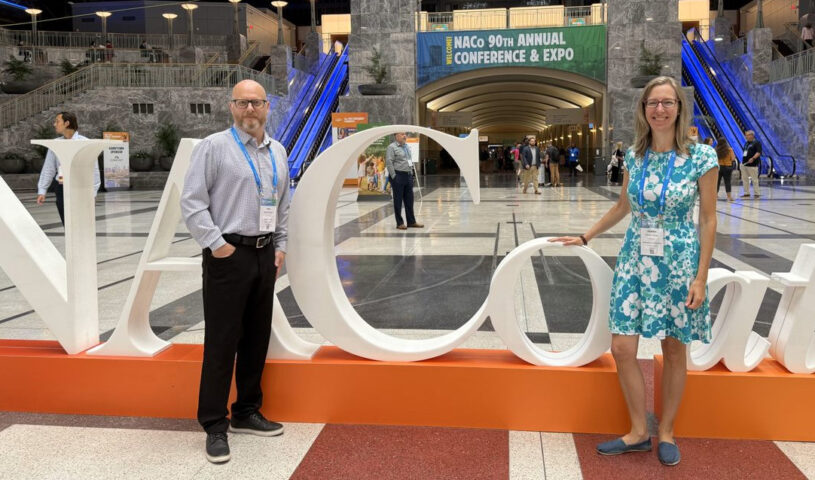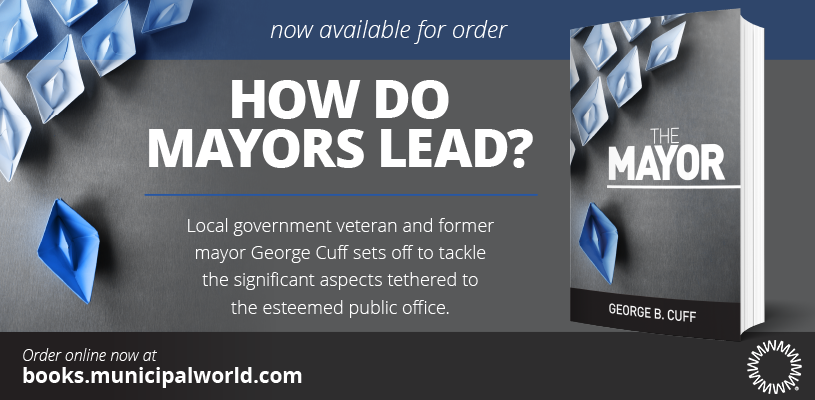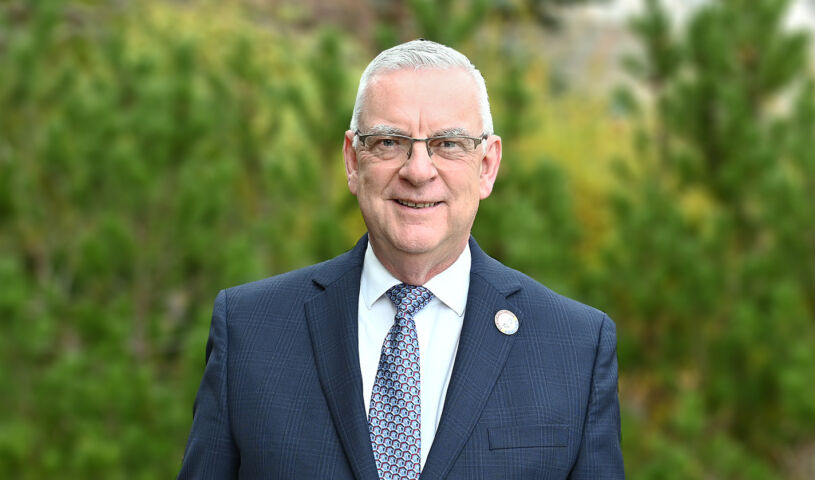FCM brings friendly tone to intense Canada-U.S. discussions
 Unlike earlier trips to the U.S. that had focused heavily on trade and tariffs, the most recent FCM delegation aimed to strengthen connections. Photo: FCM
Unlike earlier trips to the U.S. that had focused heavily on trade and tariffs, the most recent FCM delegation aimed to strengthen connections. Photo: FCM
The Federation of Canadian Municipalities (FCM) has taken a proactive and assertive stance in response to U.S. President Donald Trump’s tariff threats, especially those targeting Canadian aluminum, steel, and other goods.
That approach continued recently as FCM officials travelled to Philadelphia, Pa., for the National Association of Counties (NACo) Annual Conference. The NACo conference is a gathering of elected and appointed officials from the United State’s 3,069 counties, parishes, and boroughs.
A Listening Approach
Neal Comeau is the chair of FCM’s Rural Forum and a councillor in Sturgeon County, Alta. He has been embarking on these types of advocacy missions since the early days of Trump’s trade war.
Comeau described the Philadelphia visit as a continuation of earlier efforts to build relationships with U.S. county officials. Unlike earlier trips that had focused heavily on trade and tariffs, this time the Canadian delegation aimed to listen, learn, and strengthen connections.
The Canadian contingent didn’t take as “hardline” a stance as in earlier missions, Comeau said. This time, he added, the goal was to see how the tariffs are impacting their American colleagues and hear their point of view.
Comeau did observe what he describes as a growing economic fatigue among Americans while emphasizing the importance of local governments as frontline responders to tariff impacts.
A notable insight from a private conversation Comeau had suggested to him that some in the U.S. expect Canada to cave under the tariff pressures. And that, Comeau said, is why FCM continues to encourage Canadian leaders to stay firm.
“They’re banking on Canada folding – not folding up shop, but caving into the pressures,” Comeau said. “They don’t think they’re going to win with the Mexican administration, but they think they have a chance with Canada. So, his words to me were, ‘Hold tight, keep going as long as you can.’ So, we’re trying to portray that back to our prime minister, to the Liberal government, to say that that’s what we’re hearing.”
A Marathon, Not a Sprint
Alysson Storey was also part of the FCM team in Philadelphia. Storey is vice-chair of FCM’s Ontario Caucus and a councillor in Chatham-Kent, Ont.
Storey emphasized the Philadelphia trip was focused on reconnecting and strengthening relationships built during earlier meetings. While trade and tariffs were still relevant, the atmosphere was less tense than before.
The view toward Canadians remained positive, Storey said, adding she still had people apologizing to her for what the U.S. administration was doing. There was a lot of love and admiration, and a clear message that they aren’t looking for Canada to become some mythic 51st state.
But within the NACo membership, Storey said, there were many people openly saying they were having a tough time. There were a lot of concerns being shared, particularly around Trump’s One Big Beautiful Bill Act.
While she dislikes using the name, Storey said the realities of the impacts of that bill are “quite dire” and they’re affecting groups that relate a lot to constituencies that she and Comeau represent. When it comes to rural and agricultural areas, Storey said representatives of these communities were sharing the same concerns she is hearing back home these days.
These are all commonalities that local governments on both sides of the border can relate to, she said. It’s also why, Storey said, she believes FCM’s non-partisan role is even more critical right now, because they have the credibility. And that credibility has come through conversations with their American colleagues these past six months.
“This is a marathon. It’s not a sprint. I would almost say we have friends at NACo now,” Storey said. “These are the types of positive relationships that Canada needs to keep going when we are in perhaps a rather antagonistic relationship with certain federal players. That was one of the biggest outcomes – positive outcomes – of this visit. I thought it was really worthwhile.”
Fear and Hope in Philadelphia
One disturbing thing Comeau noticed was that many American colleagues were genuinely fearful of having their faces in the media. That, he said, is “frightening” and he couldn’t think of any other word to describe it.
After all, elected officials should be free to engage in open, honest dialogue without fear of consequences.
“I had one gentleman tell me – he said, ‘You know what? He’s my president. I can’t go against him. I don’t agree with what he’s doing, but what do I do?’” Comeau said. “I understand it. And I’m like, well, we need to continue this relationship: keep talking about it and find solutions.”
Storey said she also understands the trepidation of her U.S. colleagues. But at the same time, she also came home from Philadelphia feeling there were positive signs as well.
The fact that FCM was invited back, Storey said, was certainly a good sign. NACo has hesitated to take a public stand on Canada and U.S. tariffs because they have such a diverse membership that doesn’t always align on the issue.
As such, she appreciates and respects that they need to take that kind of stand for their membership. This is why Storey said it is still critical for FCM members to have that more informal, friend-to-friend, neighbour-to-neighbour role that allows engagement across the U.S. political spectrum despite heightened polarization.
Storey shared her experience at the Great Lakes Forum, highlighting its value as a bilateral platform for addressing regional concerns. This particularly includes the protection of freshwater resources. She noted growing worries about potential water disputes with southwestern U.S. states, marking it as a strategic issue Canada should closely monitor.
Overall, Storey framed the visit as an opportunity for gathering intelligence, fostering goodwill, and shaping future collaboration.
“There’s a lot of bilateral issues and I think if we can continue those conversations, those are great ways to information, share, and flag at the FCM national level what might be issues that we need to keep our eyes on as well,” Storey said. “So those are all very positive outcomes for me.”
The Views from Home
Reflecting on their continued participation in U.S. outreach efforts, Comeau and Storey both emphasized the importance of building constructive relationships and fostering mutual understanding through direct grassroots diplomacy.
And while Comeau and Storey have both put considerable effort into these missions, they also agree it is essential to continue these conversations at home.
Comeau said he has spoken with many residents who have approached him around just why he is travelling to the U.S. so often.
But the thing is, he said, it is important to explain the whys and what fors to them, and he is happy to do so. He “wholeheartedly” understands why people might be confused. But for a lot of them, once they find out what the FCM team is trying to do, there is positive reinforcement and encouragement.
“We all need to work in unison together. I know next week I am going to Seattle for PNWER (Pacific NorthWest Economic Region). But at the same point in time, that’s, again, another subset of people that I can have contact with,” Comeau said. “Hopefully we build more relations and break down barriers and open more doors.”
Storey said she’s had a similar experience. A lot of people, she said, are not entirely clear on why she is travelling so often to a place many of them thought Canadians were supposed to be boycotting. Once she explains she’s not going down there “for a joy ride” but rather with specific goals and tasks, and with specific people that we want to talk to, the purpose becomes clear.
“There are some questions because they see the prime minister, they see the president – these are internationally known, very influential leaders. And so what’s someone from Chatham-Kent thinking they’re going to do to impact that?” Storey said. “It’s those relationships that Neal had mentioned – those matter. You have enough of those, those can make an impact. Absolutely, we have a role to play, and I think FCM’s done a great job in organizing us into those roles.” MW
✯ Municipal World Executive and Essentials Plus Members: You might also be interested in Ibrahim Daair’s article: City parks need more funding.
Sean Meyer is digital content editor for Municipal World.
Related resource materials:



